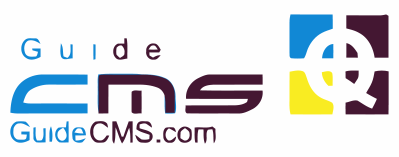Detailed Description
Clojure is a modern, dynamic, and functional dialect of the Lisp programming language that runs on the Java Virtual Machine (JVM). Created by Rich Hickey and first released in 2007, Clojure is designed to be a general-purpose language with a strong focus on concurrency, immutability, and functional programming. It combines the simplicity and power of Lisp’s syntax and macros with the performance and rich ecosystem of the JVM. Clojure emphasizes the use of immutable data structures and encourages a functional programming style, making it suitable for writing robust and maintainable code.
Age
Clojure was first released in 2007.
License
Clojure is released under the Eclipse Public License 1.0, which is a free software license approved by the Free Software Foundation.
Technology
Clojure leverages several key technologies to provide a powerful development environment:
- JVM: Runs on the Java Virtual Machine, allowing access to Java libraries and tools.
- Immutable Data Structures: Emphasizes immutability, which simplifies reasoning about code and improves concurrency.
- Functional Programming: Encourages a functional programming style, with first-class functions and higher-order functions.
- Macros: Powerful metaprogramming capabilities through Lisp’s macro system.
- Concurrency: Provides robust concurrency primitives, such as Software Transactional Memory (STM) and agents.
- Interactive Development: Supports a REPL (Read-Eval-Print Loop) for interactive programming and rapid feedback.
Example of Several Lines of Code
Here’s an example of a simple Clojure program that defines a function to calculate the factorial of a number and prints the result:
(ns example.core)
(defn factorial [n]
(reduce * (range 1 (inc n))))
(println "Factorial of 5 is:" (factorial 5))
Advantages
- Concurrency: Excellent support for concurrent programming with immutable data structures and concurrency primitives.
- Immutability: Emphasizes immutability, reducing side effects and making code easier to reason about.
- Macros: Powerful macro system for metaprogramming and extending the language.
- Interoperability: Seamless interoperability with Java, allowing access to the vast Java ecosystem.
- REPL: Interactive development with the REPL, facilitating rapid prototyping and testing.
- Simplicity: Minimalistic syntax and functional paradigm can lead to more concise and expressive code.
Disadvantages
- Learning Curve: Lisp syntax and functional programming concepts can be challenging for those used to imperative languages.
- Performance: While generally performant, Clojure may not match the raw performance of lower-level languages like C or Rust in some cases.
- Tooling: Development tools and IDE support, while improving, may not be as robust as those for more mainstream languages.
- Community: Smaller community compared to languages like JavaScript, Python, or Java, potentially leading to fewer resources and libraries.
- Verbosity: Some developers find Lisp’s prefix notation verbose and less readable compared to other languages.
Clojure is a powerful and expressive language, particularly well-suited for applications requiring concurrency and immutability. However, its unique syntax and functional programming paradigm can present a steep learning curve for new adopters.
